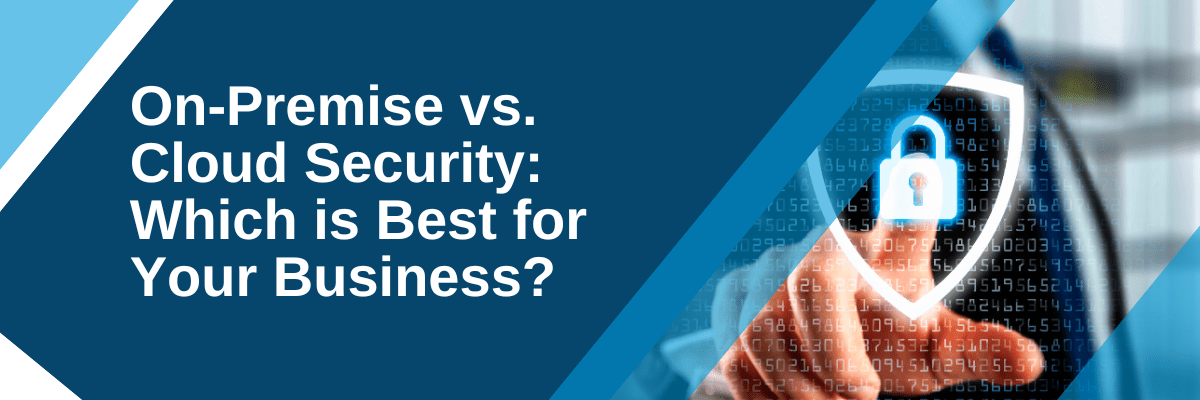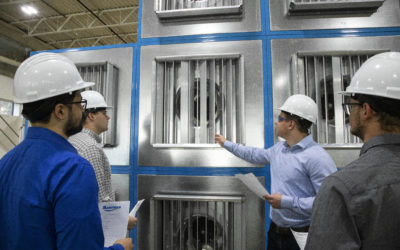
Security systems are an essential investment for any business, and choosing the right one can be a daunting task. One of the most significant decisions you’ll need to make is whether to opt for an on-premise or cloud-based security system. Both options have their benefits and drawbacks, and understanding the differences between them is crucial in making an informed decision.
On-Premise Security Systems
On-premise security systems are those that are installed and run on a company’s own hardware infrastructure, hosted locally. These systems are known for their reliability, security, and the level of control they provide, which cloud-based systems often cannot match. With on-premise security technology, your company is responsible for managing and maintaining its servers, providing complete control over the system.
Advantages
- Control & Customization: With on-premise systems, you have greater control over your security system and can tailor it to meet your specific needs.
- Higher performance: On-premise systems generally exhibit better performance compared to cloud-based systems due to their independence from an internet connection.
- Reliability: Because on-premise systems don’t rely on the cloud for their functionality, they are less prone to downtime caused by internet connection issues.
Disadvantages
- Compromised security: When each location is responsible for its own security, there is an increased likelihood of vulnerabilities. Moreover, each server needs to be updated individually with the latest security software every time a patch or upgrade is released.
- Onsite management and maintenance: On-premise systems lack the advantage of remote access. As a result, all configurations such as setting permissions and issuing or revoking credentials can only be executed onsite.
- Lacks scalability: For companies that need to adjust their access control up or down, on-premise systems are not the best solution. Each new location necessitates a new license, new hardware, new setup, and a new specialized IT team.
Cloud-Based Security Systems
Cloud-based security technology runs on a system of remote servers over the internet, meaning you don’t need a dedicated server specialist to maintain them. This allows companies to pay on an as-needed basis and effectively scale up or down, depending on overall usage, user requirements, and the growth of a company.
Advantages
- Remote management: Cloud systems offer a major advantage of remote modifications. All sites are configured and supervised through a dashboard accessible 24/7 from anywhere in the world, providing complete building control even when you’re not physically present. Certain access control vendors enable approved personnel to remotely unlock doors using their smartphone or internet connection, avoiding the need for frequent on-site visits.
- Increased flexibility and scalability: The scalability of cloud-based access control can be adjusted promptly to suit your company’s requirements, unlike on-premise systems that lack this flexibility.
- Reduced maintenance and upgrade costs: Cloud-based systems demand minimal maintenance and upgrades as the service provider takes care of them. On-premise systems need regular maintenance and upgrades that can be costly and time-intensive.
Disadvantages
- Monthly or annual cost: The cost of cloud-based models fluctuates based on usage, so the monthly or annual expenses may vary depending on the number of users and enabled features.
- Limited customization options: In terms of customized security, on-premise security solutions offer infinite options, whereas cloud-based systems provide more limited choices that can be suitable for small businesses without complex IT infrastructure. However, larger organizations might consider customization options as the deciding factor in choosing between on-premise and cloud-based solutions.
- Compliance restrictions: Businesses that must comply with government regulations, such as health insurance providers and private schools, may struggle to find a cloud-based system that meets these requirements. On-premise systems’ easy customization feature is better suited for companies that need to tailor their security systems to government access control regulations.
Choosing between on-premise and cloud-based security systems requires careful consideration of your business’s unique needs and requirements. While on-premise systems offer more control and customization options, cloud-based systems provide increased flexibility, scalability, and remote management capabilities.
Ultimately, the decision will depend on a variety of factors, including the size and needs of your business, your budget, and your security requirements. Contact the experts at Brady Integrated Security to help you make the right choice for your business.
Start the Conversation
Related Blogs
Design-Build Case Study: A Comprehensive HVAC Renovation at Polk County High School
Polk County Schools is a small, high-performing school district in Western North Carolina. The...
Determining the Best Fan Array System for Your Needs
Brady partners with Mainstream, a leading fan array manufacturer, to provide innovative solutions...
10 HVAC Projects to Enhance Your School’s Learning Environment
Summer break is the perfect time for school districts to tackle HVAC projects that can have a...



